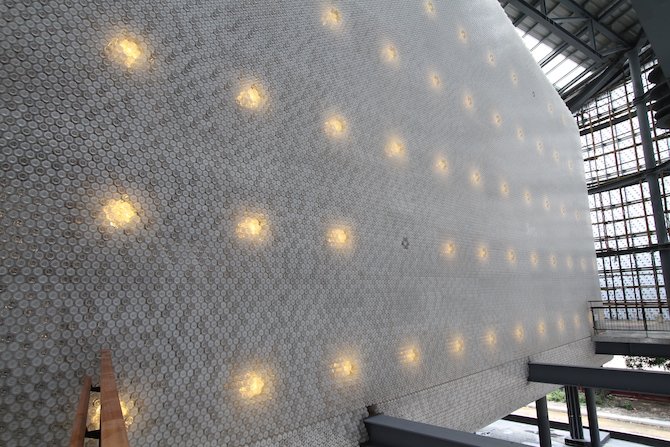Taiwan was once known as Garbage Island. Now, it has an impressive recycling rate of 55%.
Taiwan doesn’t have garbage day once a week when the trash-bags kept outside are picked up. Instead, yellow garbage trucks blasting classical music collect trash several times a week. These trucks are followed by open-bed recycling trucks.
People hurry out of their homes when they hear the music and proceed to toss their garbage into the trucks, on the basis of general refuse, raw food waste, cooked food waste, and other categories including plastic and paper.
Taiwan: the world’s geniuses of garbage disposal https://t.co/lc2d7IdMOm
— Wall Street Journal (@WSJ) May 18, 2016
But other than musical trash trucks, Taiwan also has other checks in place to maintain its recycling system.
Raw food waste is composted for further use as fertilizers by farmers, while cooked food waste is processed into food for pigs and other farm animals.
Landfills containing household and industrial waste have been found to release toxic chemicals and harmful greenhouse gases into the natural environment, potentially destroying ecosystems. Recycling garbage helps to reduce the negative impact that landfills sites have, as well as the pollution caused by waste.
In Taiwan’s capital Taipei there are more than 4,000 pickup spots five nights a week, with mobile apps that let users track the trucks and alert them whenever a garbage truck is nearby.
There are also several policies that, if violated, could be met with fines or public humiliation.
One of these rules involves compulsory disposal of all non-recyclable waste in government-certified blue bags that have to be bought.
Some areas have installed video cameras, used to catch violators. First time violators are given a warning, but the second time, the video footage is posted with the offender’s face blurred out. This serves as incentive to the offender to not violate the rules again.
Fines are also charged, and half the value of the total fines collected are sometimes offered to citizens who turn in evidence that help authorities catch violators.
Waste is also sometimes turned into art installations, like the nine storeyed EcoArk pavilion built out of recycled plastic bottles.

Last month, artist Chin Chih Yang displayed his ‘Kill Me or Change’ solo exhibition at the Museum of Contemporary Art. It involved Yang being buried in 30,000 aluminium cans in order to raise awareness about the importance of recycling.
According to the United Nations Environment Programme, a third of all food produced worldwide, worth US $1 trillion, is wasted. If countries around the world use effective waste reduction and garbage disposal systems, it could ensure a cleaner environment. It could also help feed some of the 795 million people in the world that don’t have enough food to lead a healthy life.